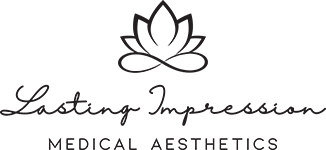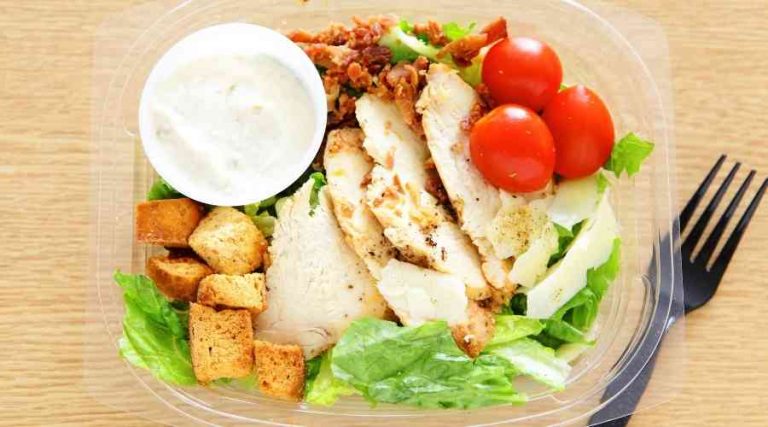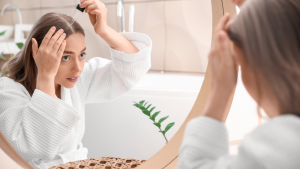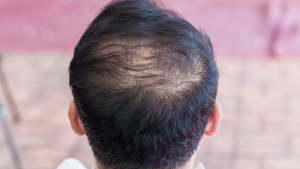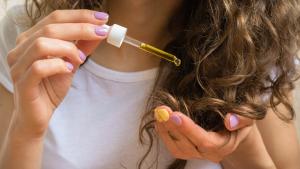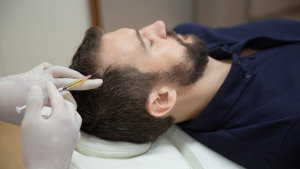Various factors can cause hair loss, including heredity, trauma, stress, hormone imbalances, and more. However, most people are unaware that their diet can also play a pivotal role in hair loss.
Nutrients, minerals, and vitamins are all vital for hair growth, and if your body does not get these nutrients from your diet, hair loss is likely to happen
Let’s take a look at some of the nutritional deficiencies that can contribute to hair loss:
Iron
Our body needs iron to produce hemoglobin, which carries oxygen to the cells. In case of an iron deficiency, the body will only supply oxygen to vital organs like the heart and brain, leaving out the hair follicles. As a result, you will suffer from hair loss due to an inadequate supply of nutrients.
The symptoms of iron deficiency include shortness of breath and fatigue. You can increase your iron intake by eating iron-rich foods such as fish and meat.
Zinc
Zinc is essential for the growth and repair of hair tissues, and it improves the functionality of oil glands around the follicles. Zinc is a trace element, which means the body cannot produce it independently. Its deficiency can cause telogen effluvium and brittle hair.
Pumpkin seeds, oysters, and steak are all excellent sources of zinc. Zinc deficiency is widespread in people who have eating disorders and consume a lot of alcohol.
Fatty Acids
Essential fatty acids such as Omega-3 and Omega-6 stimulate hair growth and help in decreasing inflammation. A lack of these nutrients can lead to hair loss from the scalp and brows and cause hair whitening. The rich sources of fatty acids include walnuts, fish, flaxseed, and supplements.
Vitamin D
The deficiency of vitamin D is the most prevalent cause of hair loss. Vitamin D improves hair growth and maintains the thickness of hair strands by stimulating hair follicles. You are at risk of high blood pressure, chronic discomfort, mood swings, fatigue, and muscular weakness if you are not getting enough vitamin D.
You can increase vitamin D intake by adding salmon, almonds, eggs, and avocado to your diet. You may also increase your exposure to the sun, but make sure you do it cautiously. When you’re out in the sun, use sunscreen and drink plenty of water.
Selenium
Selenium is a trace mineral that is required for a variety of body functions, including hair development. It possesses antioxidant characteristics that support the body’s metabolism and maintain hormonal equilibrium, necessary for healthy hair growth.
Vitamin E
Vitamin E deficiency can augment the oxidative stress in the scalp, resulting in hair loss. Vitamin E makes a protective skin barrier and increases the flow of blood to hair follicles, which promotes hair growth.
Vitamin E deficiency might cause your skin to become itchy or dry. Applying vitamin E oil to your hair can make them shiny, long, and straight. Sunflower oil, meat, and nuts have an abundance of vitamin E, and if you don’t consume a lot of these items, it’s also available as a supplement.
Vitamin A
Vitamin A galvanizes hair follicle stem cells and plays an integral role in maintaining healthy bones, skin, and teeth. It also helps to produce sebum, an oily substance that keeps the hair healthy by moisturizing the scalp.
The deficiency or excess of vitamin A can both lead to hair loss, so make sure you’re striking the right balance. Once you maintain your intake, you are bound to see an increase in hair growth.
Infertility, dry skin, and diarrhea are some of the major side effects of vitamin A deficiency. Try to increase the intake of red, orange, yellow, and dark green vegetables as they are excellent sources of vitamin A.
Biotin
Biotin, often known as vitamin B7, is an essential nutrient for our skin and hair. As biotin is found in many foods, its deficiency is relatively uncommon and usually occurs due to hereditary conditions. Smoking and the use of antibiotics are some other biotin deficiency causes.
Besides probable hair loss, disorientation, nausea, muscular soreness, and skin rashes on the face are frequent side effects of biotin deficiency.
Amino Acids & Proteins
A protein imbalance often causes hair loss and hair thinning. Amino acids contribute to tissue healing, hormone regulation, immune system enhancement, food digestion, and hair growth. They are commonly found in egg yolk, cheese, turkey, cottage cheese, mushrooms, fish, and vegetables.
Final Thoughts
No one likes to deal with hair loss, and it can become a daunting experience if left untreated. Diet modification and sufficient intake of nutrients are mostly enough to cope with hair loss. If a vitamin deficiency is a reason for your hair loss, you can add vitamin-rich foods to your diet or take supplements to better the deficiency. Before starting a vitamin supplement, it is recommended to seek medical advice to ensure whether it is safe for your health or not.
